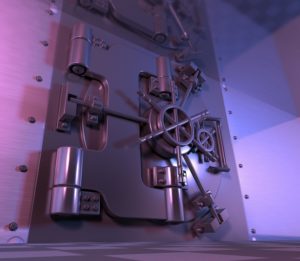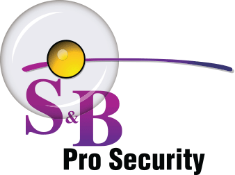
What goes into SCIF security? See how these secure rooms keep important information safe.
What is a SCIF? SCIF (pronounced like “skiff”) stands for “sensitive compartmented information facility.” Essentially, it is a secure room, compartment of rooms, or a data center that is protected by government-regulated standards. In these facilities, highly sensitive data or information gets stored or discussed under the precautionary defense measures built into the room. Only authorized personnel can enter and access the information. Further safeguards put in place to prevent the physical or electronic removal or leakage of the activities and knowledge within the SCIF. To better understand SCIF security and its role, here are four elements that go into the construction of the secure room.
Physical Security
The facility can be both a permanent or temporary construction. Temporary SCIFs are necessary when authorized personnel need to discuss or review information while traveling. The designated room or facility should have a reinforced, impenetrable perimeter. This construction will prevent any physical breeches and allow for easier detection of intruders. There are guidelines to armed guards and the number of entryways and windows for SCIF security specifications that must be followed.
Access Control and Intrusion Detection Systems
Threats to government facilities and sensitive information go beyond physical threats. Cybersecurity and electronic leaks are areas to be wary of, as well. Installing access control and intrusion detection systems help monitor the SCIF or surrounding environment for potential threats. For a security company to install these alarm systems, they must hold a UL 2050 certification (such as S&B Pro Security).
Acoustic Security
SCIF security also accounts for audible protection. Because sensitive compartmented information gets discussed within the confines, the room should be made soundproof. Conversations and phone calls should not be intelligible from outside the walls. If soundproofing construction, like padded walls, aren’t possible, sound-masking devices can be used to distribute the noise and cover-up conversations.
Visual Security
The design of SCIF security should prevent an outsider from visually seeing the ongoings or information within the secure location. The unauthorized person could try to observe the room from proximity or through the monitoring systems. Still, the construction of the SCIF should reduce or eliminate the chances of looking into the facility. There should be as few windows as possible, or none, if possible. A SCIF security accrediting official can approve some windows if it follows additional visual masking measures.
Call S&B Pro for Your Government Security Needs Today!
When you choose to work with S&B Pro Security, you are working with a company that offers the highest-end equipment and installation, with team members who are top experts in the security field. We offer residential, small business, commercial, and government security in Delaware, Maryland, Washington D.C., Northern Virginia, Baltimore, Wilmington, Newark, Annapolis, Hanover, and Rehoboth Beach.
Call us today at 800-841-9907 or email us at info@sbprosecurity.com. Find us on social media through Facebook, Twitter, LinkedIn, and Pinterest. SECURITY DONE RIGHT!
